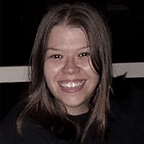What We Talk About When We Talk About Intersectionality, Class, & Oppression
Intersectionality is a word that’s been tossed around quite a bit post-2016.
I recently participated in a discussion that led to the most understandable and sensible summation of intersectionality, class, and oppression that I’ve heard. Because I wish someone had laid it out like this for me, I’m going to share it with .
Intersectionality is the intersection of multiple identities (e.g. class, race, gender, and ability), specifically when it relates to oppression.
Class is essentially these two groups: those who own the means of production (factory owners, governments, corporations, etc.) and those who work for or rely on those owners.
Oppression inhibits people’s ability to thrive, is enacted on certain groups, and is used for the control and classification of people.
I like to think most people don’t want to offend others and certainly don’t want to cause harm, but unfortunately oppression is often unintentional and the result of ignorance. So, the tricky part is what to do about all this.
We’ve all heard people say, “Check your privilege.” But what does that really mean? What should we actually do?
It makes sense to me that we first need to acknowledge that oppression is not an individual issue; it is systemic. Individuals participate in and get caught up in that system. In other words, it’s not our fault! So there’s no need to get defensive — we are all a part of a system that we didn’t choose — but we have to admit it exists in order to change it.
To do that on an individual level, which is what people mean when they say, “Check your privilege,” is to be conscious of the power we hold over people (whether we choose it or not) and recognize how it intersects with other power dynamics.
In many cases, power we hold as say, a cis-gender white person, may not necessarily have to do with a position we hold. In other words, to a person of color, a white person need not be a supervisor to hold power.
It’s not who you are; it’s who you represent.
Kimberlé Crenshaw, who coined the term intersectionality in an academic paper back in 1989, said, “Intersectionality was a prism to bring to light dynamics within discrimination law that weren’t being appreciated by the courts. …[C]ourts seem to think that race discrimination was what happened to all black people across gender and sex discrimination was what happened to all women, and if that is your framework, of course, what happens to black women and other women of color is going to be difficult to see.”
For the most part, this isn’t difficult to grasp or accept, but alas, challenges arise. Some people seem to think intersectionality is a threat, a way for minorities to get special treatment, or “a conspiracy theory of victimization.” However, Crenshaw points out since critics take their own identities into account, those criticisms aren’t really aimed at the theory (because if they were, identities wouldn’t matter).
She says, “When you’re going to sign on to a particular critique by rolling out your identity, exactly how was your identity politics different from what you’re trying to critique? It’s just a matter of who it is, that’s what you seem to be most concerned about.”
I suspect critics are sick of hearing people’s stories of being oppressed because of their race/gender/disability/orientation or some intersection thereof, but this is because they don’t try to empathize. They still see these groups as an “other” that they can’t relate to, but as I mentioned previously, there are essentially two classes, and there are considerably more of us in the working class than the owning class, so empathy doesn’t have to be a stretch.
Am I saying that anyone who has to work for a living is oppressed? Not necessarily. But their experience is a hell of a lot different than someone who owns a factory.
This is where I think it’s important to remember that we are all victims of an oppressive system of racism, sexism, and ableism. It’s not about guilt. It’s about recognizing other people’s experiences. White Fragility author Robin DiAngelo was interviewed by The Guardian earlier this year. She says,
The problem with white people is that they just don’t listen. In my experience, day in and day out, most white people are absolutely not receptive to finding out their impact on other people. There is a refusal to know or see, or to listen or hear, or to validate.
In my mind, that’s why advocacy is so important. Stories from women, the disability community, people of color, the LGBTQ+ community, and every intersection thereof need to be told over and over until they’re widely heard. Each person is their own best advocate. It’s up to all of us to see, to listen, and to validate those experiences.
So, what’s your story?
